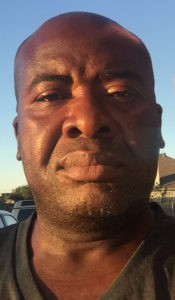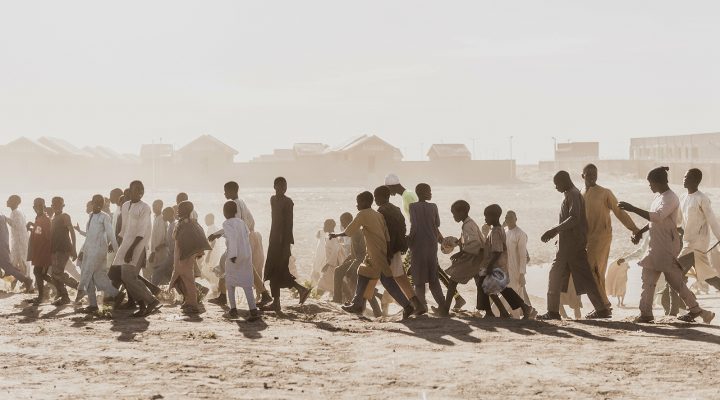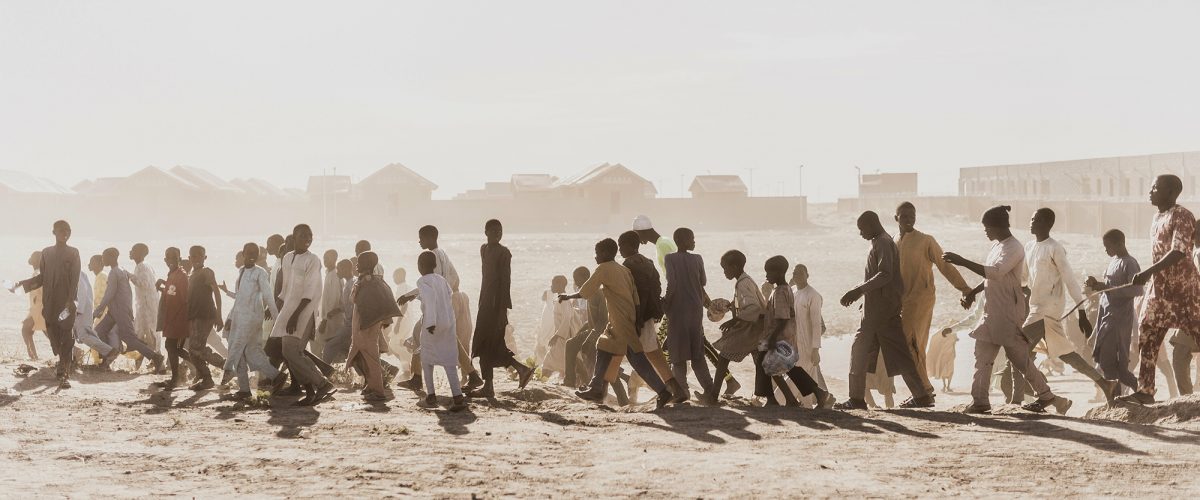I remember reading, long ago, that tragedy brings out the best in human beings in regard to empathy. But it also brings out bias.
This has been obvious over the past weeks as the Israeli-Hamas war has unfolded. Since first learning of the Hamas terrorist attack on Israel on Oct. 7 via Aljazeera TV, I have come to see just how different reaction to tragedies can be in two different geographical locations.
For good reason, people all over the world were appalled by what Hamas did in Israel, an assault that has led to a more devastating retaliatory attack on Gaza, Hamas’ operational center, by Israeli forces. As of this writing, Israel has killed more than 13,000 people in Gaza, injured many more and destroyed homes and other infrastructure.
 The photos emanating from Gaza tell the story of the horror better. They will stand as a haunting reminder of what happened in that part of the world in this modern age. In countries like the United State, the UK and France, demonstrations have been held against Israel, calling for a ceasefire. That call so far has been ignored by Israel.
The photos emanating from Gaza tell the story of the horror better. They will stand as a haunting reminder of what happened in that part of the world in this modern age. In countries like the United State, the UK and France, demonstrations have been held against Israel, calling for a ceasefire. That call so far has been ignored by Israel.
Watching one news coverage of the Oct. 7 attack and reactions by people around the world, I, for a while, thought of Boko Haram, the terrorist group operating in the northern part of Nigeria, and wondered to what extent the group is different from Hamas. As I pondered, I couldn’t help compare the global response to the Boko Haram evil in Nigeria to what is evident of the Hamas-Israeli conflict.
As I did, I wondered for a moment whether people outside Nigeria are oblivious of Boko Haram’s atrocities in Nigeria.
“I wondered for a moment whether people outside Nigeria are oblivious of Boko Haram’s atrocities in Nigeria.”
Boko Haram, otherwise called Jama‘atu Ahl as-Sunnah li-Da‘awati wal-Jihad, was formed by a radical Muslim called Muhammed Yusuf in Maiduguri in 2002. The name “Boko Haram” translates as “Western education is forbidden,” and part of the group’s agenda is to establish Sharia rule in the northern part of the country and ultimately overturn the ethnically and religiously diverse country’s secular constitution.
Since 2009, Boko Haram, with the open and covert support of many political and religious leaders from the northern part of the country, has perpetrated unimaginable violence on Nigerians — maiming, killing and destroying property. Many Christians in Nigeria, particularly those in the northern part of the country, believe that Boko Haram’s overriding objective is to eliminate Christians in the country or make life uncomfortable for them. But the truth is the group also targets Muslims, including those who do not share its violent ideology.
In Boko Haram, we see the worst kind of people propelled to perpetrate and celebrate evil. The images that have emerged from their dens and slaughter chambers over the years are too gruesome to describe. Apart from snuffing lives out of people, they succeeded in deepening divisions among people of diverse faiths.
In June 2011, as a reporter for Newswatch Magazine, I traveled from Lagos, western Nigeria, to Maiduguri and nearby Damaturu to see things for myself. Part of my findings were captured in my book, The Newswatch Crisis and the Agony of the Nigerian Media Worker: “The Boko Haram-inspired violence across the northern region has sadly changed the way Nigerians view their country and even the way they now live. I …. saw firsthand the impact of the onslaught. It was like a war situation. Fear was a word you could associate with people in both towns, with many of the streets in Maiduguri virtually deserted. One night in Maiduguri, I went to a bakery to buy some snacks. While waiting for my turn, two soldiers, with their guns, walked in. As one of them joined the line to buy something, the other went behind us and stood with his gun positioned, ready to shoot. This could only happen in a war situation, I thought.”
Since then, Boko Haram’s violence has spread to other parts of the northern region and even to neighboring countries like Cameroon, Niger and Chad, and apart from the loss of lives and property, has created one of the world’s worst humanitarian crises as people have either fled or been uprooted from their lands.
A June 2021 Reuters report quoting UN figures reveals:
Northeast Nigeria’s conflict with Islamist insurgencies had killed nearly 350,000 people as of the end of 2020, the United Nations Development Program said. The toll, given by the U.N. agency in a new study on the war and its impact on livelihoods, is 10 times higher than previous estimates of about 35,000 based only on those killed in fighting in Nigeria since the conflict’s start 12 years ago.
“Northeast Nigeria’s conflict with Islamist insurgencies had killed nearly 350,000 people as of the end of 2020.”
“The full human cost of the war is much greater,” the UNDP said in a report, released with Nigeria’s Ministry of Finance. “Already, many more have died from the indirect effects of the conflict,” said the UNDP, citing damage to agriculture, water, trade, food and health care.
What the Reuters report didn’t say is the uncountable number of people who have been displaced from their homes as a result of terrorism.
Since the release of the U.N. report, the list of Boko Haram’s victims has risen as atrocities of the group have not ceased.
In comparison, a report by CNBC this November “shows that more than 18,600 Palestinians in Gaza and the occupied West Bank have been killed in conflicts with Israel since 2008. That compares with at least 1,500 killed in Israel over the same period.” The report further reveals that “since 2008, at least 183,500 Palestinians have been wounded due to the conflicts, while approximately 11,700 in Israel have been injured.”
Why does the world know more about the tragic loss of life in Israel and Gaza than about the even greater numbers of deaths in Nigeria?
The issue really shouldn’t be about numbers but humanity. Dele Giwa, the late Nigerian journalist, once wrote that “One life lost in cold blood is as gruesome as that of millions lost in a pogrom.”
It’s not about numbers, but the lukewarm attitude to the Nigerian tragedy leaves one to wonder whether human lives in Israel or Gaza are worth more than those in Nigeria. It’s jarring how the world, including powerful world figures, who aren’t known to have shown any (serious) concern for the Nigerian humanitarian disaster that continues to this day, have been falling over themselves to make their voices heard on the Israeli-Hamas conflict.
The U.S. government, for example, is a supporter of Israel and has pledged to assist the country militarily and financially in its war against Hamas. Beyond some organizations, including religious groups that offer humanitarian assistance to victims of terror in Nigeria, Nigeria had been left to its fate as regards Boko Haram and other militant groups that have since emerged in its wake.
A USCIRF 2022 report states, “While Boko Haram’s top general, Abubakar Shekau, (who succeeded Yusuf) died this year, militant Islamist groups Boko Haram and the Islamic State in West Africa Province (ISWAP) continued to control territory, conduct attacks based on belief, and enforce their interpretations of religious law and practice in communities under their control.”
I shared my observation of the global response to the Hamas/Israeli war compared to Nigeria’s with a friend and she replied that racism and economic conditions are factors in how people around the world view conflicts.
“Most people don’t care about poor countries.”
“It’s a game of power,” she said. “Nigeria, an African country with its problems, is considered poor compared to Israel. Most people don’t care about poor countries.”
Her message is clear, but Nigeria and many other African countries, in terms of resources, aren’t poor. The main problem has been the quality of the people who aspire to leadership positions on the continent and the failure of the citizens to cast aside ethnic and religious differences and demand accountability from them. This failing has helped sustain all kinds of unspeakable crimes in public office, leading to unbridled tribalism, favoritism and corruption.
Having succeeded in creating such a dysfunctional system, which does nothing better than preserve the rich and powerful, evil politicians happily exploit divisions among impoverished people and collude with state institutions to fund and sustain themselves in power.
Human beings anywhere are one and the same. The image of a failed leadership or system, or of a powerful country or skin color, shouldn’t define how tragedies are defined or assessed by people.
To allow ourselves to fall for such sentiments is unfortunate, to say the least, for what affects one, irrespective of color, status or location, affects all.
Anthony Akaeze is a Nigerian-born freelance journalist who lives in Houston. He covers Africa for BNG.


